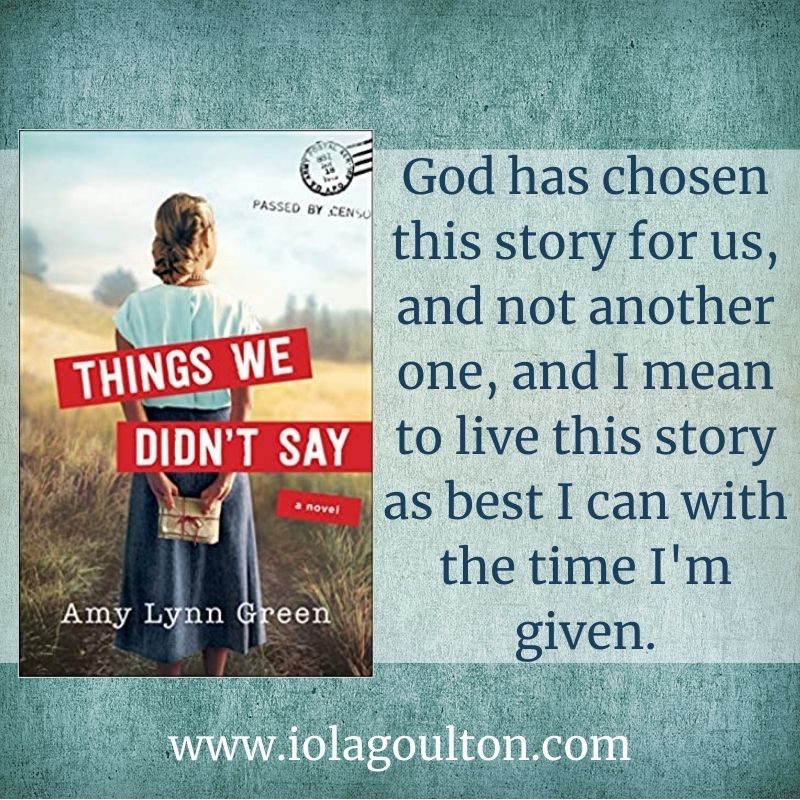Things We Didn’t Say is an unusual novel with an unusual heroine.
Johanna Berglund, the main character, speaks seven languages (and is trying to learn Japanese) when she is “persuaded” to return to her hometown of Ironside Lake to serve as a translator for the Germans in the new prisoner of war camp.
Johanna finds herself accused of treason, and the novel is the collection of documents she prepares for her lawyer to prove her innocence—letters to, from, and about her, and a collection of newspaper articles, editorials, and letters to the editor. The letters show Johanna’s virtues and faults in her own eyes, and through the eyes of friends, family, and foe.

The best historical fiction uses historical events and characters to highlight issues in the present.
Things We Didn’t Say does a masterful job of examining racism and our often irrational feelings towards those who are different to us—whether they look like us or not. It’s also telling that Green has chosen to set her story in a small town that’s home to Americans of Scandinavian descent—people who sometimes look more Aryan than their German enemies, yet people who also discriminate against Japanese Americans and African Americans.
What often has the most impact isn’t the obvious themes of the story, but the offhand comments—like the US Constitution’s definition of treason, or the kitchen hand who owns a copy of “The Negro Motorist Green Book, with safe hotels, filing stations, and eateries marked.” I’ve read my share of travel guides, but they have all aimed to sort the good from the less-good, not the safe from the unsafe.
The unusual structure gives the novel a more slow-paced feel than a “normal” novel might have. It’s also easier to stop reading than in a novel written in more traditional chapters with the cliffhanger or hook at the end of each chapter. Letters have a different structure, and mean it is a little easier to put the novel down. But it’s also easy to pick up again, and to only read one or two letters at a time. If anything, reading slowly is more representative of the timescale covered in the novel.

The title is also apt, in that a lot of the story is hidden in the things the characters don’t say in writing—another reason to read it slowly. The Things We Didn’t Say is an excellent if unusual novel.
Recommended for historical fiction fans or those interested in a Christian novel written in a non-traditional style.
Thanks to Bethany House and NetGalley for providing a free ebook for review.
About Amy Lynn Green
Find Amy Lynn Green online at:
Website | Facebook | Instagram
About Things We Didn’t Say

Johanna arrives to find the once-sleepy town exploding with hostility. Most patriotic citizens want nothing to do with German soldiers laboring in their fields, and they’re not afraid to criticize those who work at the camp as well. When Johanna describes the trouble to her friend Peter Ito, a language instructor at a school for military intelligence officers, he encourages her to give the town that rejected her a second chance.
As Johanna interacts with the men of the camp and censors their letters home, she begins to see the prisoners in a more sympathetic light. But advocating for better treatment makes her enemies in the community, especially when charismatic German spokesman Stefan Werner begins to show interest in Johanna and her work. The longer Johanna wages her home-front battle, the more the lines between compassion and treason become blurred–and it’s no longer clear whom she can trust.
You can find Things We Didn’t Say online at
Amazon | ChristianBook | Goodreads | Koorong


